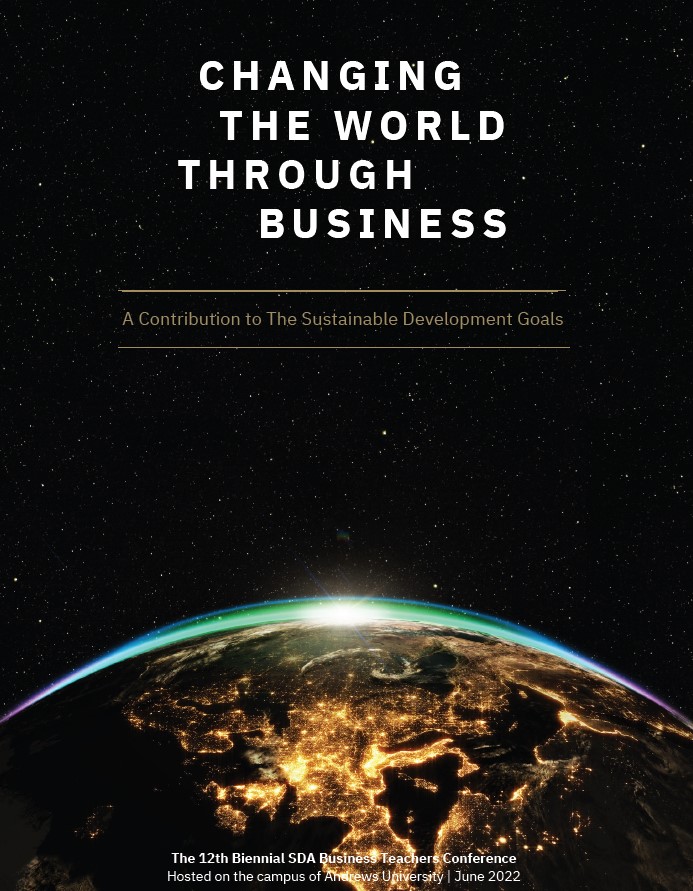Created to Reflect Christ's Influence: Aaan Evaluation of Adventist Leaders' Approach to Implementation of UN SDGs Goals
Location
Chan Shun Hall Room 209
Start Date
15-6-2022 3:00 PM
End Date
15-6-2022 4:00 PM
Description
Ambassadors represent their countries' principles and values in foreign lands. For example, Seventh-day Adventists (SDA) are ambassadors of Christ on earth. One of the fundamental principles of God's government is equity, and those who represent Him must demonstrate fairness in their leadership. In 2015, the United Nations revealed its vision to improve the world through its sustainable development goals (SDGs). The successful outcomes by 2030 of this vision depend on the participation of public/private sectors in that no one should be left behind. While the UN vision appears more theoretical than practical, the stated goals are still unmet. Nevertheless, their leadership is noteworthy, while religious leaders fall short.
This study evaluates Adventist leaders' approach to equity. The study aims to explore: 1) awareness of their role in revealing God's equitable governance, 2) whether SDA leadership influenced the UN vision of an equitable society, 3) and finally, SDA leaders' views of the UN vision
Created to Reflect Christ's Influence: Aaan Evaluation of Adventist Leaders' Approach to Implementation of UN SDGs Goals
Chan Shun Hall Room 209
Ambassadors represent their countries' principles and values in foreign lands. For example, Seventh-day Adventists (SDA) are ambassadors of Christ on earth. One of the fundamental principles of God's government is equity, and those who represent Him must demonstrate fairness in their leadership. In 2015, the United Nations revealed its vision to improve the world through its sustainable development goals (SDGs). The successful outcomes by 2030 of this vision depend on the participation of public/private sectors in that no one should be left behind. While the UN vision appears more theoretical than practical, the stated goals are still unmet. Nevertheless, their leadership is noteworthy, while religious leaders fall short.
This study evaluates Adventist leaders' approach to equity. The study aims to explore: 1) awareness of their role in revealing God's equitable governance, 2) whether SDA leadership influenced the UN vision of an equitable society, 3) and finally, SDA leaders' views of the UN vision



